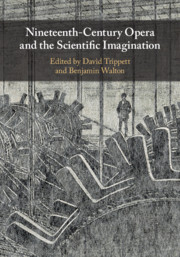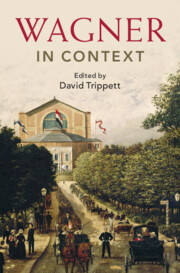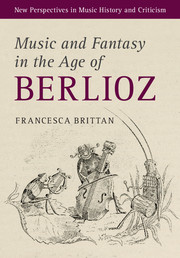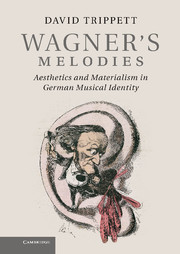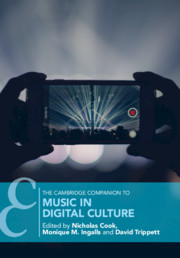Nineteenth-Century Opera and the Scientific Imagination
Scientific thinking has long been linked to music theory and instrument making, yet the profound and often surprising intersections between the sciences and opera during the long nineteenth century are here explored for the first time. These touch on a wide variety of topics, including vocal physiology, theories of listening and sensory communication, technologies of theatrical machinery and discourses of biological degeneration. Taken together, the chapters reveal an intertwined cultural history that extends from backstage hydraulics to drawing-room hypnotism, and from laryngoscopy to theatrical aeronautics. Situated at the intersection of opera studies and the history of science, the book therefore offers a novel and illuminating set of case studies, of a kind that will appeal to historians of both science and opera, and of European culture more generally from the French Revolution to the end of the Victorian period.
- Establishes a new interdisciplinary field of opera and science studies to inform and shape future work that brings musicology and opera studies closer to the history and philosophy of science
- Brings together contributors from history and philosophy of science and from musicology, and includes chapters on vocal physiology, material culture, sensory communication, stage technologies, theories of listening, electricity, hypnotism, and biological degeneration
- Continues the development of new ways of thinking about the history of material culture for music studies and includes well-grounded examples of how historians can work in this hybrid field
Reviews & endorsements
‘There is an interesting discussion of whether opera was beneficial or dangerous for the mentally ill. This exploration of the intersection of two important aspects of 19th-century Western life will interest scientists and musicians alike.’ R. Pitts, Choice
‘Over the course of the essays, all of which are excellent, the book weaves a very solid network of living objects, which resonate with each other from chapter to chapter and bear witness to the inextricable entanglement between the operatic stage and the scientific stage in nineteenth-century opera, echoes of which are still audible today.’ Isabelle Moindrot, Revue de musicologie
Product details
July 2019Adobe eBook Reader
9781316996997
0 pages
25 b/w illus. 2 tables 15 music examples
This ISBN is for an eBook version which is distributed on our behalf by a third party.
Table of Contents
- 1. Introduction: the laboratory and the stage David Trippett and Benjamin Walton
- Part I. Voices:
- 2. Pneumotypes: Jean de Reszke's high pianissimos and the occult sciences of breathing James Q. Davies
- 3. Vocal culture in the age of laryngoscopy Benjamin Steege
- 4. Operatic fantasies in early nineteenth-century psychiatry Carmel Raz
- 5. Opera and hypnosis: Victor Maurel's experiments in suggestion with Verdi's Otello Céline Frigau Manning
- Part II. Ears:
- 6. Hearing space in the music of Hector Berlioz Julia Kursell
- 7. From distant sounds to Aeolian ears: Ernst Kapp's auditory prosthesis David Trippett
- 8. Wagner, hearing loss, and the urban soundscape of late nineteenth-century Germany James Deaville
- Part III. Technologies:
- 9. Science, technology and love in late eighteenth-century opera Deirdre Loughridge
- 10. Technological phantoms of the opéra Benjamin Walton
- 11. Circuit listening Ellen Lockhart
- Part IV. Bodies:
- 12. Excelsior as mass ornament: the reproduction of gesture Gavin Williams
- 13. Automata, physiology and opera Myles Jackson
- 14. Wagnerian manipulation: Bayreuth and the sciences of the mind James Kennaway
- 15. Unsound seeds Alexander Rehding.

